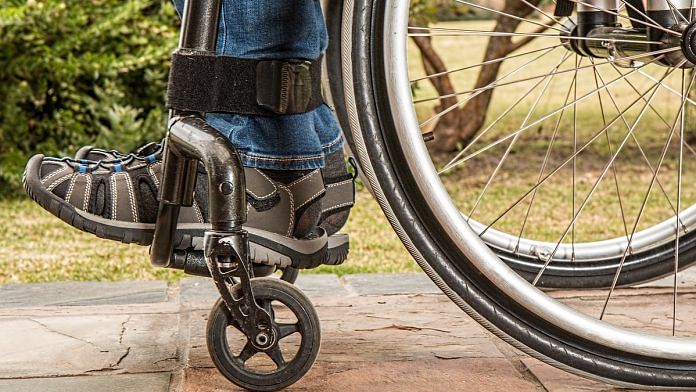Madhavi, a Paralympic Wheelchair Basketball Champion and a national swimmer, is an owner of an apartment in a residential complex in Chennai along with nearly 107 others. She pays her monthly maintenance fee regularly, just like others. Recently, she requested the complex to set up a pool lift to make the apartment swimming pool accessible to people with disabilities and senior citizens. Instead of action, Madhavi had to face the discriminating attitude of the apartment association’s office bearers. She even came forward to bear the financial expense of the pool lift, which would cost around Rs 1.3 lakh, and brought in experts and manufacturers, and submitted reports on the safety of the lift to the association. But they were hesitant to give approval.
Recently, Madhavi received a letter from the association that the pool would be allowed under certain conditions. She has to submit a safety certificate, there must be a yearly AMC, and she must enter into an agreement with the apartment association taking full responsibility for the lift. All these conditions are unduly harsh, outrightly discriminatory and in violation of the Rights of Persons with Disability Act 2016.
Even though Section 5 of the Act reiterates community life for people with disability, they face a lot of harassment and ostracisation when it comes to housing. Along with police officers, lawyers and transgender people, Indians with disability and parents of children with disability are not preferred as tenants. Even if a generous landlord comes forward, the house will not be accessible. Not all people with disabilities (PwDs) can afford to buy a dream house.
Also Read: Now Airlines have to inform in writing for refusing boarding to persons with disability, says DGCA
Need for ‘reasonable accomodation’
The National Building Code reiterates the importance of accessibility and the need for universal designs to create barrier-free built environments for people with disability and the elderly, but many residential apartments and complexes don’t seem to be bothered about these aspects. It is the obligation of the builders/promoters to make residential buildings accessible. For instance, allotting a house on the ground floor for a person with disability, ear-marking or assigning specific car parking spaces, and making common amenities like swimming pools, gyms, parks accessible. After the promoter has handed over the premises, it becomes the duty of the apartment association to provide reasonable accommodations.
The 2016 Act defines reasonable accommodation as “necessary and appropriate modification and adjustments, without imposing a disproportionate or undue burden in a particular case, to ensure to persons with disabilities the enjoyment or exercise of rights equally with others”. The principle of reasonable accommodation is a component of equality and it captures the positive obligation of a party to provide additional support to people with disability to facilitate their full and effective participation in society. As in the case of Madhavi, a pool lift is a reasonable accommodation, which is necessary for her to enjoy the swimming pool equally with others.
Also Read:What’s missing in govt’s plan to secure ‘accessibility’ for persons with disabilities
Make buildings accessible
To solve these issues faced by people with disabilities NGOs such as SCAN (Special Child Assistance Network) are coming up with community living for people with disabilities with accessible facilities. However, these community living spaces are exclusively for PwDs away from mainstream society. In order to integrate people with disability into the mainstream and make them part of society, all building sanctions and approval should be accorded only if the building plan strictly adheres to the accessibility standards of the National Building Code and harmonised guidelines and space standards for barrier-free built environment.
After the residential apartments are handed over, it must be the obligation of the apartment association to provide all reasonable accommodations for the common amenities in the complex. As far as possible, these apartment associations must be inclusive with representation of residents with disabilities. People should be sensitised about disability rights and issues to prevent harassment and hostile attitudes when they approach landlords for rentals. The commissionerate for persons with disability should take up housing-related cases of PwDs on priority bases and come up with comprehensive guidelines covering these aspects.
Reasonable accommodation is not a personal favour, it’s an obligation.
Karpagam Mayavan is the first female visually challenged Advocate at the Madras High Court. Views are personal.



